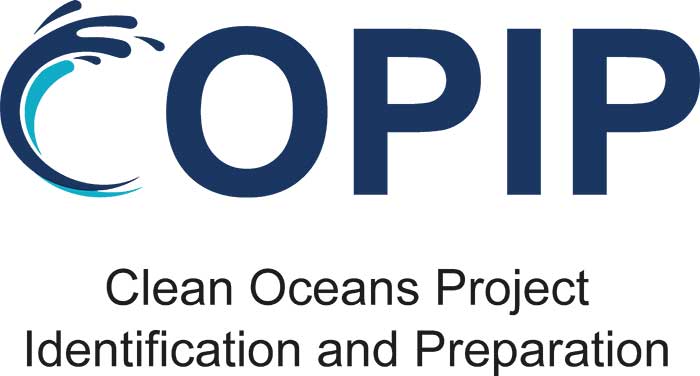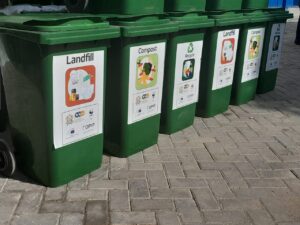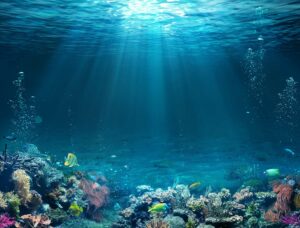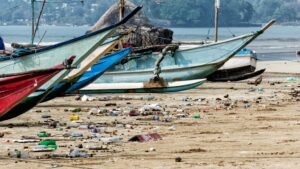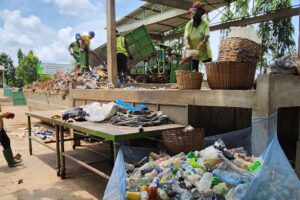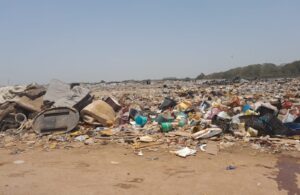Location: Sierra Leone, Greater Freetown.
Client: Freetown City Council (FCC).
What is the challenge: Freetown is the economic and financial centre of Sierra Leone and is the economic hub of the country. The country’s largest corporations locate their headquarters’ home offices in Freetown as well as the majority of international companies. The city’s economy revolves largely around its port, which is the largest natural harbour on the continent of Africa and the third largest in the world[1]. Overall waste generation in the city is estimated to be 550.000 t/year (for 2021). Waste generation is expected to surpass 1.000 t/day in 2030, and 2.000 t/day in 2050, assuming that no measures are taken to curb demographic growth and waste generation. However, Environmental legislation in Sierra Leone is scarce, and industrial pollution control is mainly handled via EIA licenses.
There is no legislation ruling stormwater management. Technical decrees are not existing. In addition, Solid waste management in Freetown is currently carried out at a very basic level, or not at all. The major dump sites in Freetown are not adequately managed and these include Kingtom, Granville Brook and Waterloo. The city also suffers from a large number of illegal dumpsites, 68 of which being considered as “major”. Three major slum settlements are located on the Freetown shore: Susan Bay, Kroo Bay and Rokuper. These sites are built on land reclaimed by backfilling of the Sea with solid waste and are inhabited by a total of approximately 50,000 people.


Several small watercourses pass through Freetown, and each of these transports continuously waste to the ocean. Beaches in Freetown as well as in Lungi, on the other side of Tagrin Bay are polluted with plastics for kilometers. Similarly, clusters of waste are regularly observed in the open waters. Moreover, Freetown does not have a central sewerage and wastewater treatment system. It is estimated that only 6 % of liquid waste is currently managed. It is also estimated that Sierra Leone produces over 96.000 tonnes of plastic waste per year and 84 % is mismanaged. Institutional capacities in the SWM sector, control and law enforcement mechanisms are weak.
Our Intervention: The Tetra Tech COPIP Consortium is providing technical and financial support to the Freetown City Council (FCC) in Freetown to implement the Transform Freetown Solid Waste Management and Sanitation Project. A Pre-feasibility study for the project is being conducted by the COPIP Consortium and several engagements have been held with FCC and other key stakeholders in Sierra Leone.
Interventions proposed by COPIP include:
Introduction of waste collection in the informal and/or inaccessible settlement areas of Freetown.
Extension of Geobag system and subsequent hygienisation of dried sludge.
Assessment and rehabilitation of central sewer network.
Community-based co-digestion latrines for Susan Bay reconstruction.
Rehabilitation of Kingtom and Kissy dumpsites.
Comprehensive, long term capacity building and technical assistance.
Benefits of our intervention:
The project will improve waste collection management and the water and sanitation challenges in Freetown, leading to a clean and healthy environment by reducing amounts of plastic being washed into the sea and reducing the risk of water contamination.
Increase the waste collection rate, which is currently very low, rehabilitate the dumpsites, all of which are connected to surface waters and the Sea and will support and strengthen recycling initiatives.
Assist in the implementation of the FCC ambitious plan called the “Transform Freetown” which is targeting a safe collection, management and disposal of 60 % of Freetown’s annual solid & liquid waste generation and ensuring that 40 % of all Freetown’s plastic waste is recycled by 2022.
Contribute to the implementation key policy frameworks such as the National Policy Roadmap on Integrated Waste Management, National Water and Sanitation Policy, Integrated National Waste Management Policy and the National Integrated Waste Management Strategic Plan.
Contribute to the Clean Oceans Initiative objectives because the project will focus on the waste management and the water and sanitation components.
Summarized from: http://www.freetowncity.com/economy/4544165078
